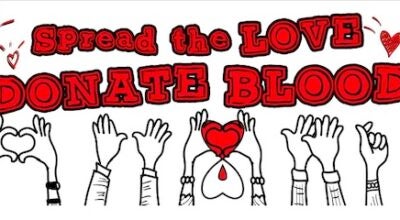#dateformat(NOW(), “dddd, mmmm d, yyyy”)# #timeformat(NOW())# CNN
Published 12:00 am Monday, July 13, 1998
ABCNews
Wash. Post
Newslink
Opinions Letters to the Editor Editorials Columns
Intervention can help heal troubled families
By Harold Keller / L’Observateur / July 13, 1998
Family intervention is not something you hear much about unless you’re familiar with a 12-step support group dealing with alcoholics, drug addicts, overeaters, compulsive gamblers, and the like.
I’ve been called many times to handle family interventions. I will neverforget the first one I did many years ago at the request of the children because their mother had a drinking problem. I knew the mother very well- she is deceased now – because I was working with her son who had an illegal drug problem.
Sometimes the person who is singled out for the intervention might be resentful, but this mother accepted the meeting, knowing that the action taken by her children was in love. She got sober and, today, her son isdrug-free, married, leading a healthy productive life, and is a good husband and father.
Recently, at the request of a grandmother, I had the privilege of moderating a family intervention with her daughter and her four grandchildren. The grandmother was concerned about the unrest in herhome. She confided in me that the primary purpose for the meeting was toreach one of the children, but that they needed help.
When I arrived at the house for the meeting, the mother and her four children were waiting in a nice setting in their comfortable living room.
After I introduced myself and told them how the meeting was arranged, I asked if we could pray. We stood up, held hands, and prayed for me to havewisdom and compassion and for all of them to be open-minded during our meeting.
It wasn’t hard to identify the hurt. The mother – a pretty lady, and her fourchildren – one girl and three boys – were the victims of a man who married the woman, fathered the children, and 10 years ago, deserted the family.
We spoke casually about many things – school, likes, dislikes, friends, attitudes, (you name it, we spoke about it). The girl seemed to be verybitter, and I told her so. In our conversation, she said that she would neverforgive her father. I told her that was her choice, but until she did forgivehim she would be in bondage to hate and resentment. I told her thatforgiveness can be considered a selfish act because we do it to free ourselves.
The oldest boy shared some personal things that shocked his mom. (It’samazing the honesty that comes out in a family intervention.)The boy, who was the original target of the meeting, was rebellious and I sensed could be violent.
The youngest was quiet and seemed still innocent.
Of course, the mother took most of the blame for the dysfunction of the family, especially from her daughter.
After they vented their frustration, I asked them to grade their mother on a scale of 1 to 10, with 10 being the best, as a mother, provider and protector.
The girl said, without hesitation, “She’s a 10!” The oldest boy said that she was a 9. He smiled a said, “She’s not perfect.”The two other boys each gave her a 10.
In closing, I said, “One more thing – I want each of you to say something encouraging and nice about your mother.”The young girl looked at her mom and said, “Mom, you’ve done a good job, no matter what I’ve said in the past.”The oldest son said, “Mom, I really love you.”The second-to-oldest son said, “Yeah, Mom, you’ve done a pretty good job and I love you.”The youngest seconded the motion.
I suggested that they all hug their mom and they did. We ended with aprayer.
They, naturally, thanked me, but it wasn’t necessary. I told them that Iwas the most blessed to just be a part of seeing a family beginning to heal all past hurts.
Harold Keller is a regular columnist for L’Observateur.
Best viewed in 4.0 or higher Copyright © 1998, Wick Communications, Inc.
Internet services provided by NeoSoft.



